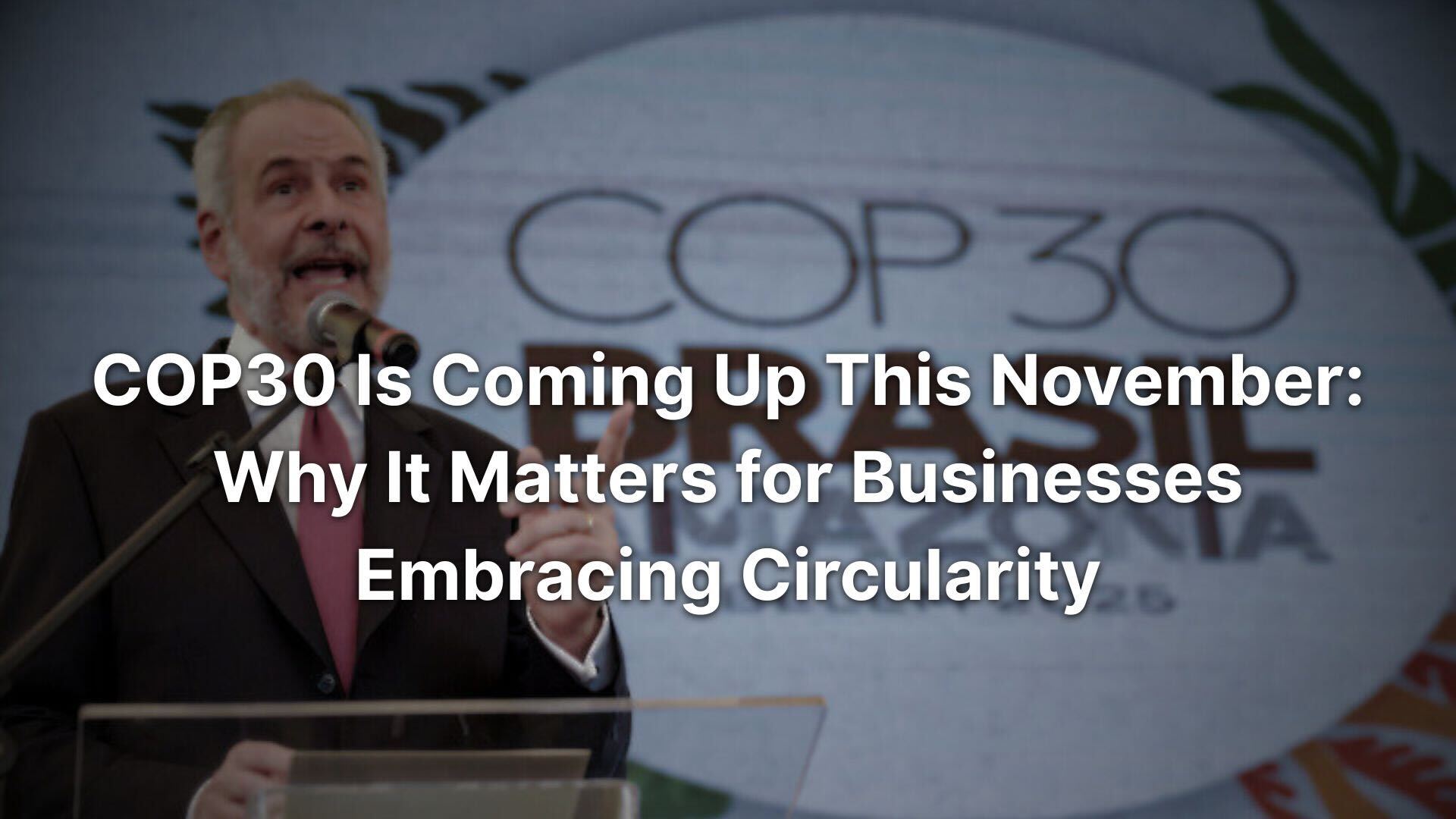The Future Is Circular; And So Should Your Business Be
As sustainability shifts from a “nice to have” to a non-negotiable, businesses are under pressure to adapt. But here's the opportunity: the circular economy isn’t just a compliance box to tick—it’s a smart business strategy that drives profitability, resilience, and competitive advantage.
If you want to build a future-proof business, the time to embrace circular interventions is now.
What Are Circular Interventions?
Circular interventions are practical, business-focused steps that help reduce waste, increase value from materials, and extend the life of products. These can include:
- Repair and refurbishment programs
- Product return optimization
- Circular sourcing strategies
- Resale or rental business models
- Waste-to-value transformations
These interventions move companies away from linear “take-make-waste” models toward profitable circular economy solutions.
1. Circular Interventions Drive Profitability
Implementing circular strategies isn't just good for the planet—it’s good for your bottom line. Our clients often ask:
"Can circularity be profitable?"
And the answer is: absolutely.
Here’s how:
- Reduced material costs through reuse and remanufacturing
- New revenue streams from resale and repair services
- Fewer returns thanks to smarter product design and diagnostics
- Lower waste management costs
We’ve seen businesses improve margins by up to 20% by switching to circular practices.
2. It Future-Proofs Your Brand
Consumers and B2B partners alike are prioritizing sustainable brands. Adopting a circular business strategy strengthens your reputation, improves brand loyalty, and helps you stay ahead of regulation.
Being early in the game positions you as a leader, not a follower.
3. Circularity Builds Operational Resilience
Supply chain disruptions are here to stay. Circular models that rely on local sourcing, reverse logistics, and modular product design reduce dependence on fragile, globalized systems.
The result? More control. Less risk.
4. Circular Interventions Are Scalable and Customizable
From pilot programs to full transformations, circularity can start small. Many of our clients start with:
- A return optimization strategy
- A repair pilot in a single region
- A circular product line that proves ROI
With the right circularity consulting, these can be scaled across your value chain.
5. The Data Speaks: Circularity = Smart Growth
Companies that embrace circularity are seeing measurable impact:
- +15–30% increased customer retention
- Up to 80% material efficiency gains
- Thousands of kg CO₂ saved annually
It’s no longer just about doing less harm—it’s about creating more value.
Start Your Circular Transformation
At Circular Innovations, we help businesses translate circular goals into real-world impact and ROI. Whether you’re exploring sustainable innovation, want to launch a circular pilot, or need help scaling existing initiatives, we’re here to help.
--> Get in touch here to discover how circular interventions can fuel your business growth.
--> Join our platform to connect with vetted circular solution providers. Join for free here



.png)
